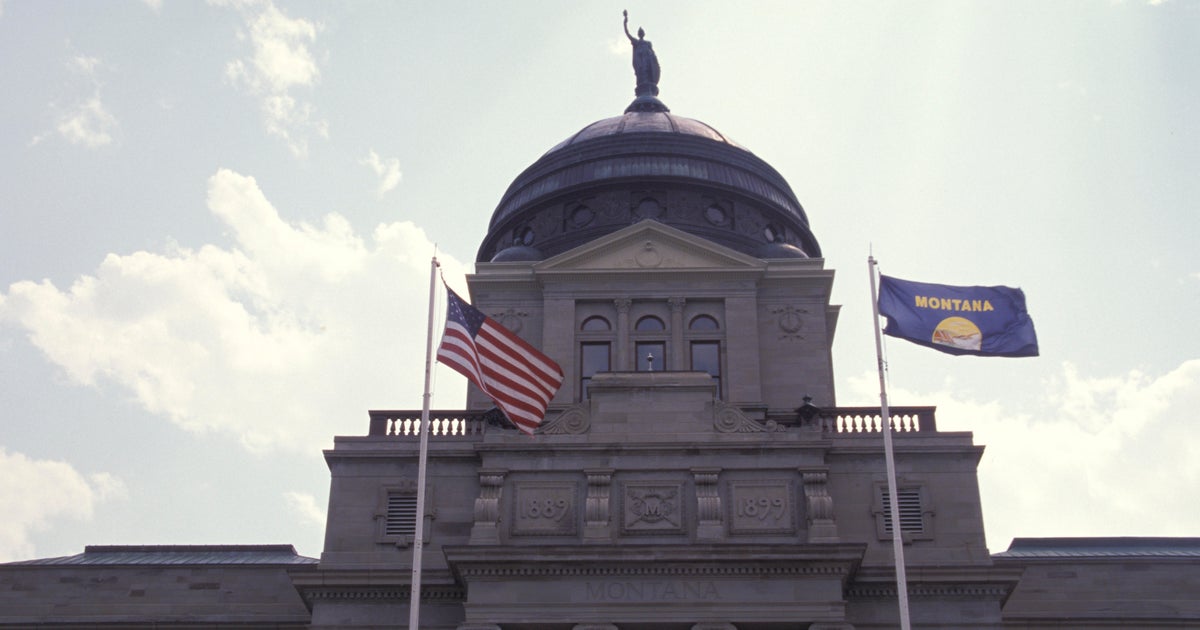CBS News
Abortion rights ballot measure to go before Montana voters

Voters will get to decide in November whether they want to protect the right to an abortion in the constitution of Montana, which on Tuesday became the eighth state to put the issue before the electorate this fall.
The Montana Secretary of State’s Office certified that the general election ballot will include the initiative on abortion rights. All but one of the eight states are seeking to amend their constitutions.
Montana’s measure seeks to enshrine a 1999 Montana Supreme Court ruling that said the constitutional right to privacy protects the right to a pre-viability abortion by a provider of the patient’s choice.
Republican lawmakers in the state passed a law in 2023 saying the right to privacy does not protect the right to an abortion. It has yet to be challenged in court.
Opponents of the initiative made several efforts to try to keep it off the ballot, and supporters took several of the issues to court.
Republican Attorney General Austin Knudsen initially determined that the proposed ballot measure was legally insufficient. After the Montana Supreme Court overruled him, Knudsen rewrote the ballot language to say the proposed amendment would “allow post-viability abortions up to birth,” eliminate “the State’s compelling interest in preserving prenatal life” and potentially “increase the number of taxpayer-funded abortions.”
The high court ended up writing its own initiative language for the petitions used to gather signatures, and signature-gatherers reported that some people tried to intimidate voters into not signing.
The Secretary of State’s Office also changed the rules to say the signatures of inactive voters would not count, reversing nearly 30 years of precedent. The office made computer changes to reject inactive voters’ signatures after they had already been collected and after counties began verifying some of them.
Supporters again had to go to court and received an order, and additional time, for counties to verify the signatures of inactive voters. Inactive voters are people who filled out a universal change-of-address form but did not update their address on their voter registration. If counties sent two pieces of mail to that address without a response, voters are put on an inactive list.
Supporters ended up with more than 81,000 signatures, about 10.5% of registered voters. The campaign needed just over 60,000 signatures and to qualify 40 or more of the 100 state House districts by gathering the signatures of at least 10% of the number of people who voted for governor in 2020 in that district. The initiative qualified in 59 districts.
Republican lawmakers have made several attempts to challenge the state Supreme Court’s 1999 ruling, including asking the state Supreme Court to overturn it. The Republican controlled Legislature also passed several bills in 2021 and 2023 to restrict abortion access, including the one saying the constitutional right to privacy does not protect abortion rights.
Courts have blocked several of the laws, such as an abortion ban past 20 weeks of gestation, a ban on prescription of medication abortions via telehealth services, a 24-hour waiting period for medication abortions and an ultrasound requirement — all citing the Montana Supreme Court’s 1999 ruling.
Last week the state Supreme Court ruled that minors in Montana don’t need parental permission to receive an abortion, overturning a 2013 law.
In 2022, Montana voters rejected a referendum that would have established criminal charges for health care providers who do not take “all medically appropriate and reasonable actions to preserve the life” of an infant born alive, including after an attempted abortion. Health care professionals and other opponents argued that it could have robbed parents of precious time with infants born with incurable medical issues if doctors are forced to attempt treatment.
The legality of abortion was turned back to the states when the U.S. Supreme Court overturned Roe v. Wade in June 2022.
Seven states have already put abortion questions before voters since then — California, Kansas, Kentucky, Michigan, Montana, Ohio and Vermont — and in each case abortion supporters won.
CBS News
Black women have higher risk of dying from all types of breast cancer, new study finds

Watch CBS News
Be the first to know
Get browser notifications for breaking news, live events, and exclusive reporting.
CBS News
Francis Scott Key Bridge victim’s wife wants legal action against Dali ship company

Watch CBS News
Be the first to know
Get browser notifications for breaking news, live events, and exclusive reporting.
CBS News
Black women have higher risk of death from all types of breast cancer, study finds

Black women are about 40% more likely to die of breast cancer than White women, but new research is showing this applies to all forms of the disease — and examines why.
In the study, published in the Journal of Clinical Oncology Tuesday, researchers found black women are at higher risk of dying from all tumor subtypes of breast cancer, with the size of this disparity varying from 17% to 50% depending on the type of breast cancer.
The research used data from 18 studies that were published between 2009 and 2022, analyzing a total of 228,885 breast cancer cases, 34,262 of which were in Black women.
“These findings underscore a stark reality in our healthcare system: Black women are facing higher risks of death from breast cancer compared to their white counterparts, across all types of the disease. This disparity isn’t just about biology,” co-author Paulette Chandler, associate epidemiologist in the Division of Preventive Medicine at Brigham and Women’s Hospital, said in a news release.
Authors found the contributing factors include socioeconomic inequality, delays in diagnosis and inadequate access to timely quality cancer treatment.
“To achieve equity, intervention is necessary at multiple levels — from community to healthcare systems and individual healthcare providers, to patients themselves learning about their disease and what their expectations should be for their care,” senior author Erica Warner, a cancer epidemiologist at Massachusetts General Hospital, said in the release.








